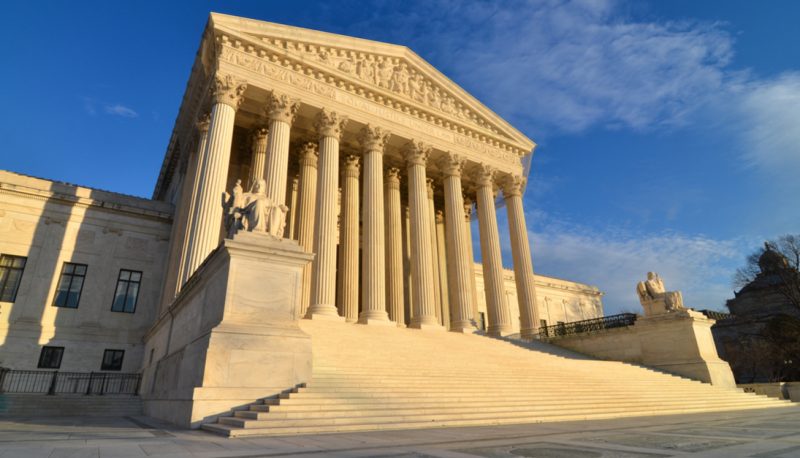“Confirmed Judges, Confirmed Fears” is a blog series documenting the harmful impact of President Trump’s judges on Americans’ rights and liberties. Cases in the series can be found by issue and by judge at this link.
Trump Justice Neil Gorsuch argued strongly in dissent that the Court should have blocked a lower court order upholding an agreement by the state election board to count North Carolina absentee ballots received up to nine days after Election Day. Gorsuch also joined a concurrence reluctantly agreeing to not order such relief in Pennsylvania but threatening to support disqualification after the election of ballots arriving there after Election Day. The Court’s October 28 ruling concerning North Carolina was in Moore v. Circosta and its Pennsylvania order was in Republican Party of Pa v Boockvar.
In North Carolina, the state board of elections decided in September that absentee ballots postmarked by Election Day but received up to nine days thereafter could be counted, as opposed to the previous three-day post-election period. The decision was included in a consent order settling a lawsuit against the board, and Republican legislators tried to block the decision in the Fourth Circuit. That court denied a stay by a 12-3 vote, and the case went to the Supreme Court.
The Supreme Court denied the Republican request without opinion. Justice Barrett did not participate, and Justices Gorsuch, Thomas, and Alito dissented. In a written dissent joined by Alito, Gorsuch argued that the case was an effort to “rewrite a state legislature’s election deadlines” similar to what happened in Wisconsin, where the Court issued a 5-3 order blocking the counting of absentee ballots received after Election Day. This was despite the fact that in North Carolina, it was the state election board, acting under authority “delegated” by the legislature, which took the action.
In Pennsylvania, as a result of a 4-4 vote on October 19, the Court did not disturb a state supreme court decision that allows the counting of absentee ballots received up to three days after the election. With Justice Barrett joining the Court, Republicans in the Pennsylvania legislature decided to try again and asked the Court to consider its petition for review on an expedited basis.
Without dissent, the Court declined to grant the Republicans’ request. Barrett did not participate, according to the Supreme Court public information office, because she “has not had time to fully review” the filings in the case and there was a need for a prompt ruling. Even Justices Alito and Thomas and Trump Justice Gorsuch did not disagree, but they issued a very troubling statement, written by Justice Alito.
In the statement, the three justices “reluctantly” concluded that there was not time to issue another ruling concerning Pennsylvania before the election, but were highly critical of the state supreme court’s decision and the Court’s 4-4 ruling not to take action earlier, claiming that the election in the state will now be “conducted under a cloud.” They noted that Pennsylvania has already decided to separate ballots received after the election and made clear that they would be willing to consider a “targeted remedy” to disqualify those ballots after Election Day.
Although it is now clear that no action will happen before Election to block the counting of absentee ballots postmarked by Election Day but received three or nine days afterwards in Pennsylvania and North Carolina, what will happen after Election Day remains unclear. If the election in either of those states is close, three justices would clearly support disqualifying ballots received after the state legislature’s deadline. Justice Kavanaugh’s recent opinion in the Wisconsin case suggests he may be willing to do so as well. The 64,000-dollar question will be whether Justice Barrett would supply a fifth vote.
America may never know, depending on election margins and other factors in November. But the opinions by Trump justices Gorsuch and Kavanaugh are extremely troubling on these issues. As one commentator has noted, at least in Pennsylvania, if Vice-President Biden achieves only a “narrow victory, SCOTUS might step in and void enough ballots to change the outcome.”

